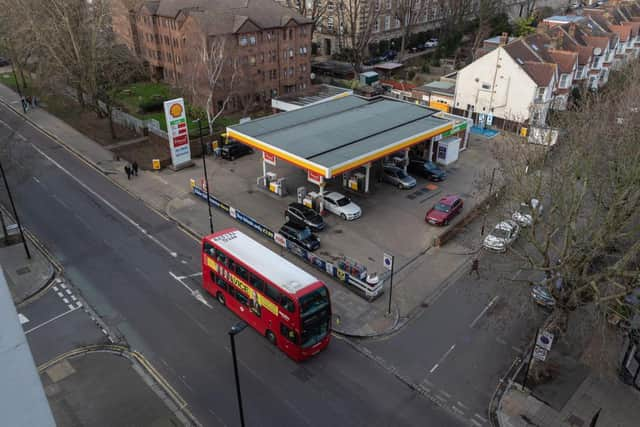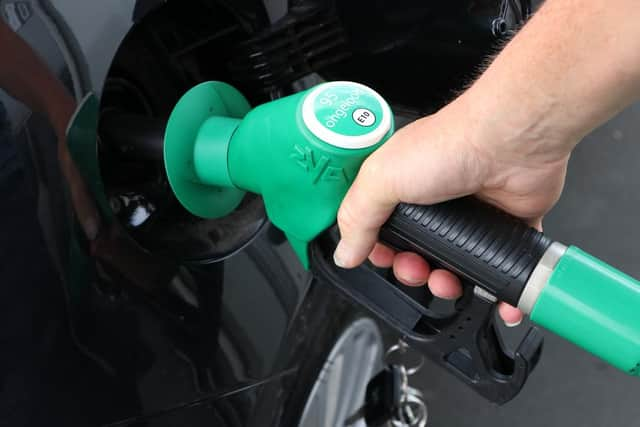Drivers face ‘relentless’ fuel price rises as petrol hits 8-year high
and live on Freeview channel 276
Fuel prices have reached an eight-year high in parts of the UK with warnings that further rises could be on the way.
Motorists have been hit by nine straight months of rises at the pumps, with July bringing another 3.4p increase on the price of petrol and 2.7p on diesel.
Advertisement
Hide AdAdvertisement
Hide AdThat has pushed the average forecourt cost to 135.13p per litre for unleaded - the highest it has been since September 2013. Diesel is also at its highest price since 2014, at 137.06p per litre.


The RAC’s Simon Williams said that drivers now faced a relentless rise in the price of fuel and warned that rising demand was likely to push it even higher unless oil producing nations took action.
It now costs around £3 more to fill an average family car than it did at the start of June and £10 more than it did in July 2020, when oil prices were beginning to recover following a crash in April.
As many countries begin to ease lockdown restrictions and return to normal demand for oil has begun to increase. Oil producing countries have been limiting supply in order to bolster the wholesale price of oil, leading to fears that demand will outstrip supply and push prices up further.


Advertisement
Hide AdAdvertisement
Hide AdMr Williams, the RAC’s fuel spokesman, said: “Prices really are only going one way at the moment – and that’s not the way drivers want to see them going. With a second summer staycation in full swing, it’s proving to be a particularly costly one for many families who are using their cars to holiday here in the UK.
“With so many people depending on their vehicles, there’s really nothing drivers can do to escape the high prices, and our best advice is for them to drive as economically as possible in order to try to make their money go further.
“Right now it’s hard to see what it will take for prices to start falling again. While we’re not past the pandemic by any means, demand for oil is likely to continue to increase as economic activity picks up again, and this is likely to have the effect of pushing up wholesale fuel prices, costs which retailers are bound to pass on at the pumps. Unless major oil producing nations decide a new strategy to increase output, we could very well see forecourt prices going even higher towards the end of the summer.”
Supermarkets remain the cheapest places for drivers to fill up, with prices there around 3p per litre cheaper than the national average.
